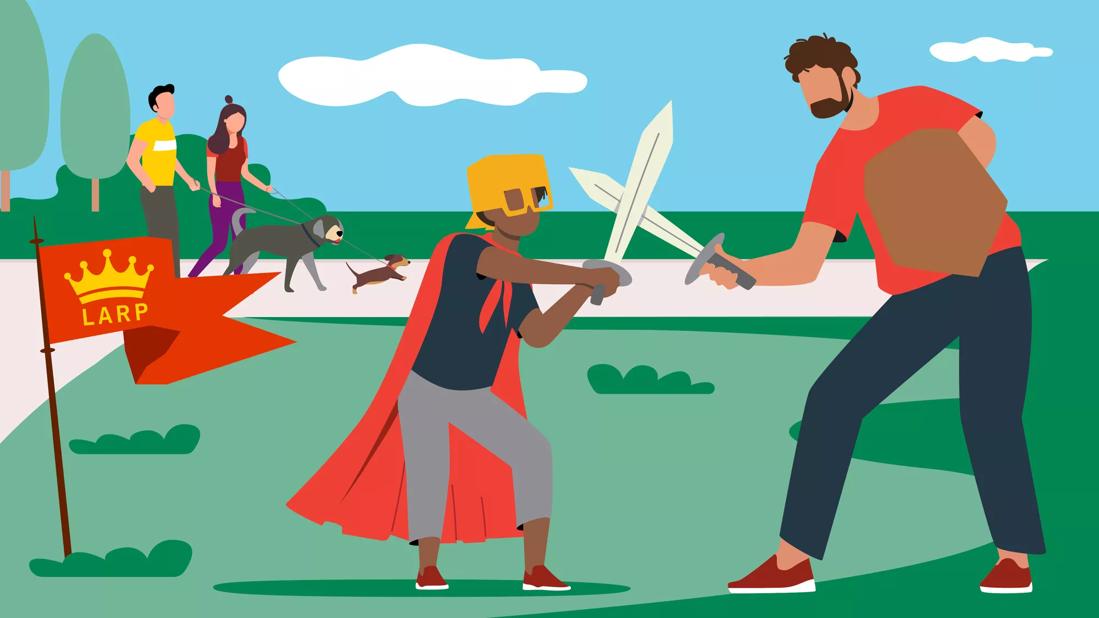Integrating coping skills into your teen’s daily routine helps turn self-care into a lifelong healthy habit

Being a teenager has always been tough, but what “tough” looks like changes with each generation. In addition to everyday stressors like schoolwork, dating and the unending quest for pocket money, today’s teenagers face existential challenges — think rising temperatures, school shootings and the impact of the COVID-19 pandemic. That’s tough stuff to contend with! And it’s understandable that your child might not feel strong enough to withstand the winds of change.
Advertisement
Cleveland Clinic is a non-profit academic medical center. Advertising on our site helps support our mission. We do not endorse non-Cleveland Clinic products or services. Policy
How, as a parent or caregiver, can you help your kid build the mental fortitude and self-confidence they need to thrive?
Let’s start with what you can’t do: You can’t promise your teen a stress-free life. That’s not how it works. But you can help them see that the way they handle their problems can either intensify stress or release it.
“Parents can help teens build skills and stockpile tools for turning the lemons life hands them into lemonade,” says adolescent medicine specialist Ellen Rome, MD, MPH.
Teaching your children coping skills is half the battle. The second half is making sure those skills are integrated into their daily life. Turning self-care and confidence-building activities into daily habits won’t just help your child manage their day-to-day stress or process tough feelings. It’ll also give them the tools they need to weather the hardest moments of their lives, whenever those moments come.
Dr. Rome walks us through the basics of coping skills and shares six strategies for boosting your teen’s resilience.
If you ask most people if they know what coping skills are, the answer will probably be yes. But defining them? That might be a bit tougher.
Coping skills are the thoughts and behaviors we use to handle — and, in some cases, resolve — stressful situations. They can be good or bad for us. Substance use, for example, is an unhealthy coping mechanism. By teaching our children healthy ways to manage their feelings and circumstances, we give them the confidence they need to endure hardships, solve problems and manage difficult emotions.
Advertisement
Most of the coping skills we use in our daily lives fall into one of two categories: They’re either problem-based or emotion-based.
“What is the goal of the activity?” Dr. Rome asks. “If it helps you solve a problem that’s upsetting you, it’s a problem-based coping skill. If you’re trying to manage the emotions the problem raises, you’re using an emotion-based coping skill.”
It’s important for teens to learn and practice both kinds of coping — and not just when things are going wrong. Once they’ve found the activities that work for them, they need to practice them so that they become a default response to stress.
Examples of problem-based coping skills include:
The benefit of problem-based coping is pretty straightforward: Your teen can address the underlying issue that’s causing their complicated feelings. It’s about getting stuff done. Or in some cases, walking away.
“Sometimes, avoiding stress that is avoidable is a strength in itself,” notes Dr. Rome.
The downside, of course, is that not all problems are fixable, and not all of our feelings are tied to concrete concerns. Sometimes, our feelings need to be the focus.
When people get upset, the nervous system that triggers their fight-or-flight response takes over.
“Yoga, mindfulness, meditation and deep breathing can activate the other nervous system, which shuts down the stress response,” Dr. Rome shares. “They can also help your teen gain mastery and focus.”
Visualizing a “happy place” of their choosing can help your child relax anywhere — even on the road or in the middle of class. So, can box breathing, which involves visualizing a square, and breathing in along two sides of it, and out along the other two.
Encourage teens to tell themselves a positive story about what’s going on. Visualizing success can increase the odds for a good outcome.
“If you allow self-defeating thoughts into your minds, you can make those thoughts become your reality,” says Dr. Rome.
Advertisement
Other healthy outlets for dealing with emotions include:
Emotion-based coping skills are crucial because they’ll help your teen deal with circumstances that they’re powerless to change, not to mention the free-floating anxiety that comes with growing up and becoming more independent.
Just be sure that — if the source of your kid’s stress can be addressed — that’s happening, too. Visualizing a spot on the varsity team is a great way to get motivated, but it won’t get them very far if they aren’t putting in the work.
All kids need help learning coping skills, but it’s especially important if you’re noticing that your child is:
Advertisement
Now that you know what coping skills are and how to tell when your teen needs help developing them, let’s talk implementation. Dr. Rome offers six suggestions for parents who want to help their teen build resilience.
Think back to the biggest problems in your life at age 13. Some of them were big. Maybe even huge. But most of them weren’t. Most of the time, you were dealing with lots of little problems standing on each other’s shoulders wearing a trench coat, cartoon-style: The problems seemed much bigger than they really were.
Teaching your child to cut those problems down to size can make a big difference in their mindset.
“If you’ve got 87 billion stressors, what are the top three, and which one can you work on today?” Dr. Rome illustrates. If homework seems overwhelming, suggest that your teen make lists and timelines, and check off each task as it’s completed.
Advertisement
Parents can also role-model using the Serenity Prayer. This non-denominational prayer teaches teens how to discern what can and can’t be changed about a situation, and how to accept what’s beyond their control.
“Be super clear that you want your kids to work hard to be their best selves,” says Dr. Rome. “Kids will live up or live down to our expectations.”
If you focus on the As your teen brings home, you’ll see more As; if you focus on the Cs, the Cs may come up to Bs, but the As may go down also. Dr. Rome says that emphasizing the positive and noticing when kids are doing something right tends to work best.
She also recommends praising hard work, rather than results.
“Tell your teen, ‘I saw how hard you worked for those grades — what a great way to organize yourself to get that done!’” Dr. Rome advises.
When you must criticize, target a behavior — that’s easier to change than an attitude.
“Some kids who are labeled ‘lazy’ may not be putting out effort for fear of disappointing you,” notes Dr. Rome. “That label only makes them feel worse about themselves — and angry for not being seen for who they are.”
Instead, tell your child you know they care about doing well, and that you want to better understand what’s making them uncomfortable about trying harder. She suggests saying:
“If you listen well, your kids will learn to talk to you,” encourages Dr. Rome. “If you let them win when they present a valid argument, you will earn the privilege of continuing to hear their thoughts.”
Hustle culture. The grindset mindset. Busy bragging. In some communities, overwork, exhaustion and poor mental health have become status symbols. In schools and colleges, you’ll sometimes hear students describe it as the “stress Olympics.”
It’s a strange competition. Everybody that plays, loses.
There’s nothing wrong with getting a good night’s sleep, sitting down for a proper meal or carving out time to play your favorite video game. That’s balance.
In the same way that you commend your kid’s hard work, be sure to commend their commitment to self-care. Opting out of the stress Olympics isn’t easy, but it’s healthy. And self-care isn’t selfish. Far from it! Self-care helps us achieve our goals and be there for the people we care about.
Let’s say there’s a relationship that’s troubling your teen. Saying, “Just get past it” or “Don’t make such a big deal out of it,” doesn’t work. In fact, it will probably make things worse.
“Feelings are not the enemy,” Dr. Rome states.
Instead of trying to convince your kid to feel better, or trying to fix the situation, listen more than you talk. Acknowledge and restate their feelings. Ask clarifying questions.
Using healthy coping skills in your daily interactions with your child can show them how to reboot a relationship that’s important and help them discover their emotional triggers.
“You can role-model how to apologize first, without explanations or excuses, in all your relationships,” she continues. “You can say, ‘I’m sorry — I don’t know what I have done to make you angry. Is there anything I can do to make things right?’”
Trying to make the world a better place feels good. “It’s hard to keep feeling bad about yourself when you’re helping other people,” notes Dr. Rome.
“Contributing to the world builds competence, confidence, connection and character,” she says. “It teaches teens that their decisions and actions can make a difference in their circumstances — that they have at least some control over their destinies.”
You’ve probably noticed that the words “model” and “modeling” have popped up a lot. It’s an important teaching technique. And it works: The single best way to learn something is to teach it.
If you’re a parent or guardian, you’re likely used to pouring your energy into other people — sometimes, at your own expense. But guess what? Your teen will actually benefit from seeing you learn about, respect and process your own difficult feelings. When you prioritize your mental health, you’re teaching them to prioritize theirs.
“Nothing is as important as what your kids see you doing on a daily basis, so it’s important to be a good role model,” Dr. Rome emphasizes.
If you’ve been working with your teen on improving their coping skills, but they’re still struggling, it’s time to get professional support.
Make an appointment with your pediatrician if your child doesn’t have a therapist already. Their provider will determine if there’s an underlying physical or mental health condition that needs treatment and refer you to the appropriate experts.
Remember: There’s nothing wrong with needing some extra help. And reaching out when times are tough? Well, that’s a tried-and-true coping skill! And getting your kid the support they need is modeling at its finest.

Sign up for our Health Essentials emails for expert guidance on nutrition, fitness, sleep, skin care and more.
Learn more about our editorial process.
Advertisement

Changes in your child’s emotions, behavior, sleep and appetite can all point to depression

Look for signs like withdrawing from social eating and not gaining weight — and get treatment early if possible

The need for sleep often takes a back seat for teens, but they need eight to 10 hours of sleep to stay mentally healthy, strengthen their brains and prevent injury

Talking in the car, resisting the urge to judge and asking specific questions can help rebuild rapport

The vagina is full of healthy and unhealthy bacteria, so discharge can be normal or problematic

Eat the right foods, and get plenty of sleep and exercise

Parents must intervene, in a productive way

A pediatric neurologist explains the troubling rise in teens with tics

Even small moments of time outdoors can help reduce stress, boost mood and restore a sense of calm

A correct prescription helps your eyes see clearly — but as natural changes occur, you may need stronger or different eyeglasses

Both are medical emergencies, but they are very distinct events with different causes